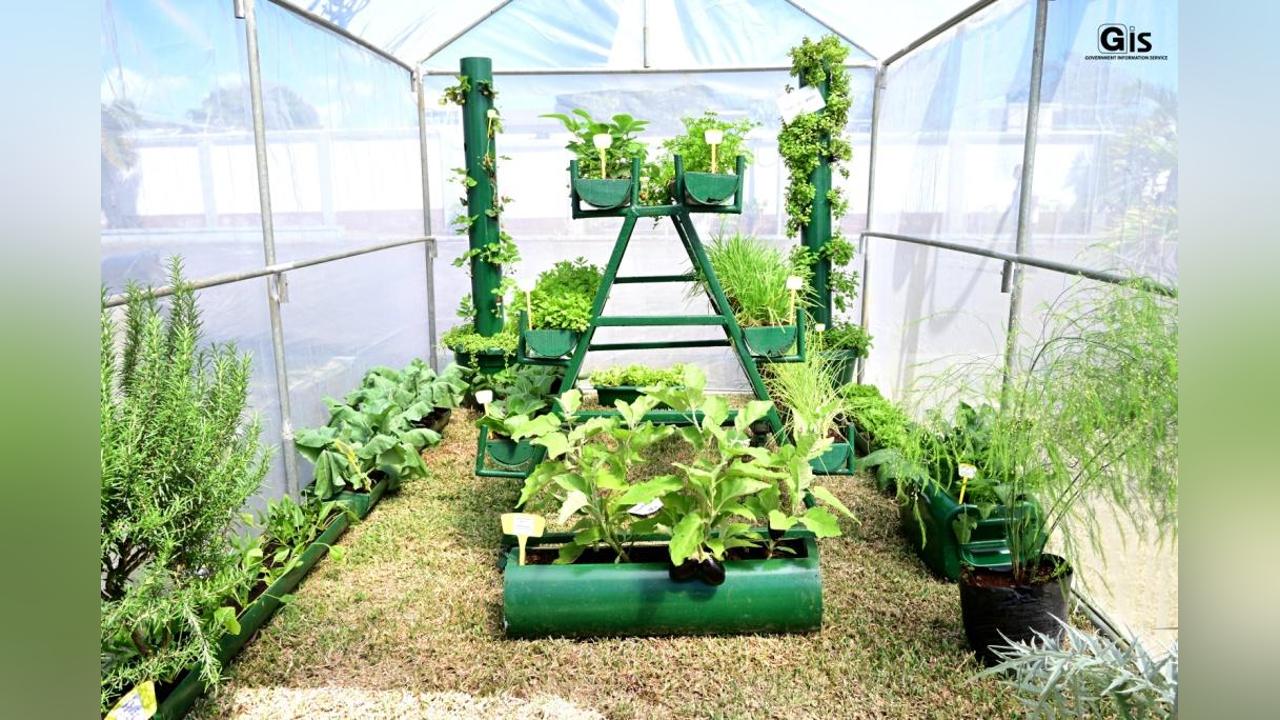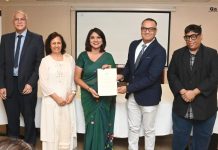Africa-Press – Mauritius. The Backyard Gardening Project and the promotion of entrepreneurship in agriculture/agro-processing were launched, yesterday at the Farmers Service Centre, Rivière du Rempart, in the presence of the Minister of Gender Equality and Family Welfare, Mrs Kalpana Koonjoo-Shah.
The Senior Chief Executive of the Ministry of Agro-Industry and Food Security, Mr Medha Gunputh, Parliamentary Private Secretary, Mr Rajanah Dhaliah, and the Member of Parliament, Ms Subhasnee Luchmun Roy, were also present.
In her address, Mrs Koonjoo-Shah highlighted that Mauritius has, during the last two years faced significant challenges in the wake of adverse impact of climate change, the COVID-19 pandemic and the conflict between Ukraine and Russia resulting in soaring food prices.
Mauritius, she added, is vulnerable to soaring prices of imported food items, raw materials such as fertilizers, seeds, ingredients for livestock feed and increasing freight charges and has triggered a new outlook regarding food security for its people.
She emphasised that Government is therefore encouraging the concept of Backyard Gardening and Organic/ Bio food production in Mauritius. She stated that FAREI is promoting the concept of organic household garden at regional level adding that selected crops will be grown following organic principles.
Speaking about the project, the Gender Minister said that it aims to create an awareness for organic production and consumption among the population; reinstall the concept of backyard gardening; promote the concept of organic farming at household / regional level; encourage the production of vegetables as per organic principles at backyard level; boost the consumption of fresh and pesticides free vegetables at family level; and encourage the recycling of household waste through composting and hence improve soil fertility.
For his part, Mr Gunputh dwelt on the advantages of Backyard Gardening. According to him, it aims to improve the nutritional status of those involved since there is the potential that participants could improve their diets through more positive perceptions and access to these foodstuffs.
Backyard gardening, he underlined, may also be effective in mitigating the effects of both food insecurity and poverty, for those undertaking the gardening activities but also for the wider community where the produce may be distributed or sold.
He also urged more people to become entrepreneurs and underscored the advantages of entrepreneurship. He seized the opportunity to encourage them to take advantages of the numerous facilities put at their disposal by Government to start a business.
Setting up of Backyard Gardening In line with government policy to encourage Organic/ Bio food production in Mauritius, FAREI is promoting the concept of organic household garden at regional level.
Selected crops will be grown following organic principles. The main activities associated with the project are: Training of beneficiaries on ‘Organic Crop Production’.
This training will be run over four half days and is a MQA approved course. Upon successful of training trainees will be awarded a certificate of attendance.
Tour to an organic farm (Pamplemousses Organic Research Station) Demonstration on composting using household waste Advisory visits to individual plots to improve skills and productivity
Handing over a starter kit consisting of seeds, hand tools, bio fertiliser, watering cans, compost, basket and a roselle plant to give an incentive for the inhabitants Demonstration of chipper for the production of mulching material.
The expected outcome of the project is the establishments of pesticide free kitchen gardens in the surrounding localities; the development of a pool of trained persons in organic crop production and composting; increase in volume of the production and consumption of chemical free home grown vegetables; and increase in the demand for organic product.
It is expected that the same project will be replicated in other regions of the country to promote organic food crop production in Mauritius. Some 97 ha are under sustainable production of which there is presently some 60 ha under production using organic standards.
The estimated production is around 2,000 tonnes annually and the main crops grown are greens (‘tom pouce’ mainly), carrot, beetroot, cabbage, mint, parsley, celery, coriander, thyme, cauliflower, banana, and sweet potato.
For More News And Analysis About Mauritius Follow Africa-Press







